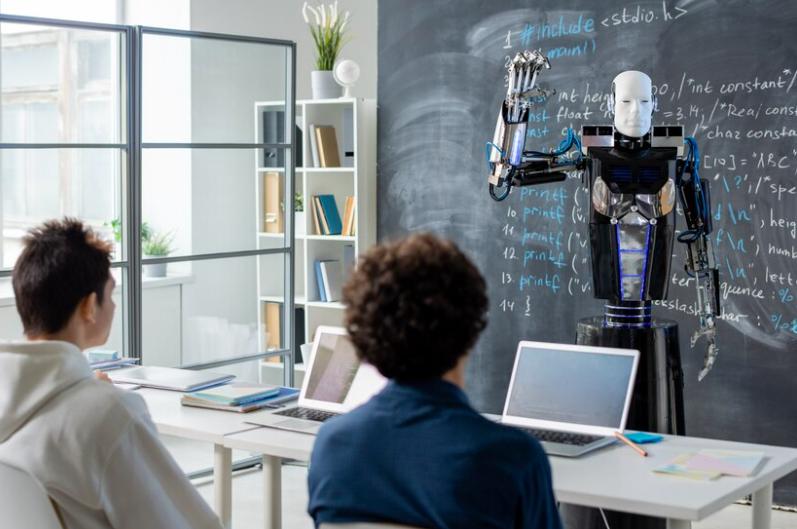Artificial intelligence (AI) is revolutionizing education

From personalized learning to virtual tutors, AI is being used to make education more accessible, effective, and engaging.
Here are some of the ways that AI is being used in education:
- Personalized learning: AI can be used to personalize learning by adapting the curriculum to each student's individual needs and interests. For example, AI can be used to recommend resources and activities that are relevant to each student's learning style.
- Virtual tutors: AI can be used to create virtual tutors that can provide one-on-one instruction to students. For example, AI can be used to create tutors that can answer questions, provide feedback, and help students learn new concepts.
- Assessment: AI can be used to automate assessments and provide feedback to students. For example, AI can be used to grade essays and quizzes, and provide feedback on areas that need improvement.
- Curriculum development: AI can be used to develop curriculum that is more engaging and effective. For example, AI can be used to analyze student data and identify areas where the curriculum can be improved.
- Research: AI can be used to conduct research and discover new knowledge. For example, AI can be used to analyze large datasets and identify patterns that would be difficult to find manually.
These are just a few of the ways that AI is being used in education. AI has the potential to revolutionize education and make it more accessible, effective, and engaging for everyone.
The future of AI in education is bright. With continued research and development, AI is poised to play an even greater role in education in the years to come.
Here are some of the potential benefits of AI in education:
- Increased personalization: AI can help to personalize education by adapting the curriculum to each student's individual needs and interests. This can help students to learn more effectively and efficiently.
- Improved engagement: AI can help to improve engagement by providing students with more interactive and personalized learning experiences. This can help students to stay motivated and interested in learning.
- Reduced costs: AI can help to reduce costs by automating tasks, such as grading and assessment. This can free up teachers' time so that they can focus on providing more personalized instruction.
- Enhanced equity: AI can help to enhance equity by providing all students with access to high-quality education, regardless of their background or location.
- Increased innovation: AI can help to increase innovation by providing new ways to learn and teach. This can help to prepare students for the jobs of the future.
The adoption of AI in education is still in its early stages, but it is growing rapidly. As AI technology continues to develop, it is likely to play an increasingly important role in education.
Here are some of the challenges that need to be addressed in order to fully realize the potential of AI in education:
- Data privacy: AI systems need access to large amounts of data in order to train and operate effectively. This raises concerns about data privacy and security.
- Algorithmic bias: AI systems can be biased if they are trained on data that is biased. This can lead to unfair decisions being made, such as denying students access to opportunities.
- Explainability: It can be difficult to understand how AI systems make decisions. This can make it difficult to trust and use these systems.
- Regulation: As AI becomes more widely used in education, there will be a need for new regulations to ensure that it is used responsibly and ethically.
Despite these challenges, the potential benefits of AI in education are significant. With careful planning and execution, AI can help to make education more accessible, effective, and engaging for everyone.


